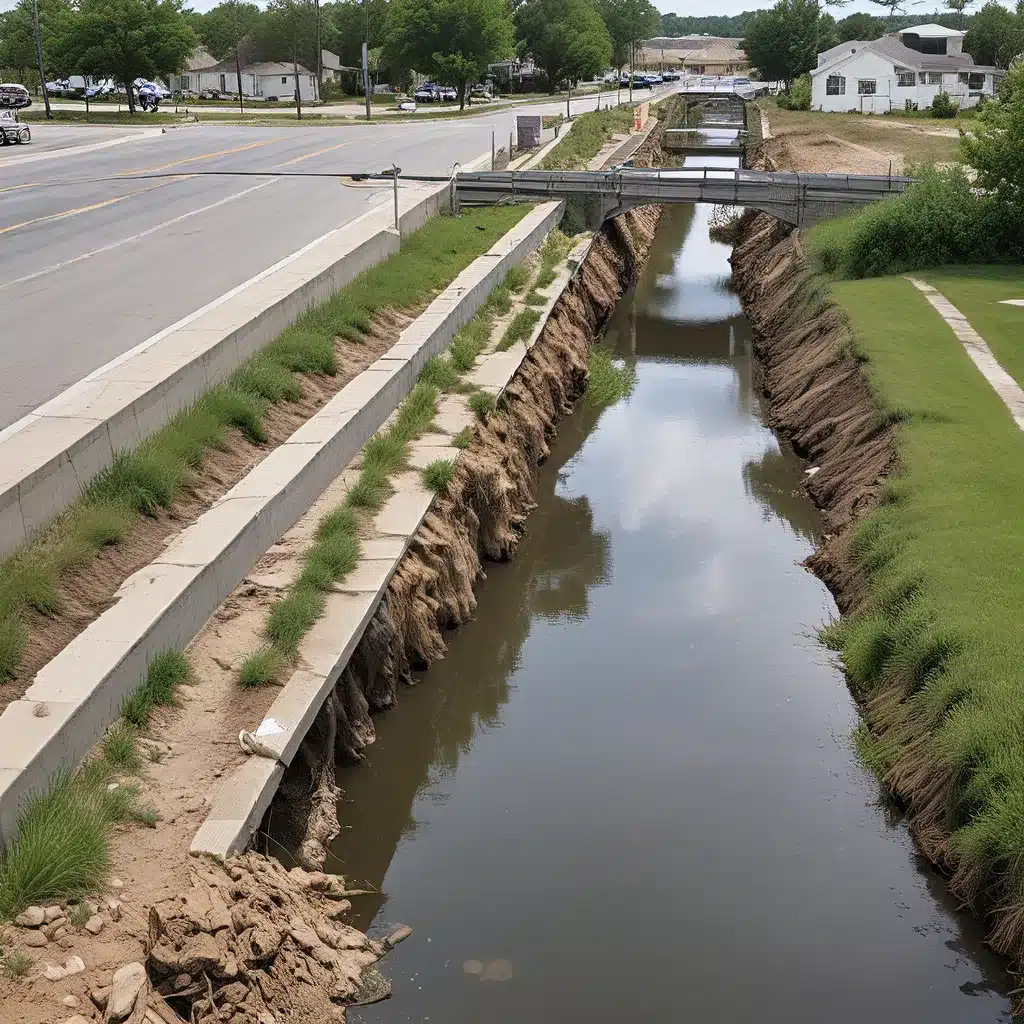
As the old adage goes, there’s no better time to prepare for a storm than when the sun is shining. When it comes to managing our most precious resource – water – this sentiment couldn’t be truer. In a world where natural disasters, infrastructure failures, and unforeseen crises can disrupt our water supplies at a moment’s notice, having a robust emergency water management plan in place is not just a nice-to-have, but an absolute necessity.
Weathering the Storm: Understanding the Importance of Emergency Water Management
Imagine, if you will, a bustling city brought to its knees by a major water main break. Families going without clean drinking water, hospitals struggling to maintain essential services, and businesses forced to shutter their doors. It’s a sobering thought, but one that has played out all too often in communities across the globe. Recent studies have shown that the economic impact of water supply disruptions can be staggering, with losses reaching into the billions of dollars.
But the stakes are even higher when it comes to public health and safety. Contaminated water can lead to the spread of waterborne illnesses, putting vulnerable populations like the elderly, young children, and those with compromised immune systems at serious risk. And in the event of a natural disaster, a well-prepared emergency water management plan can mean the difference between life and death for those in need of clean, reliable water.
Navigating the Uncharted: Evaluating Your Current Emergency Water Plan
If you’re like me, the thought of tackling your organization’s emergency water management plan might feel a bit like venturing into uncharted waters. Where do you even begin? Well, fear not, my water-loving friend, for I’ve got a few key points to consider that can help you chart a course towards resilience.
First and foremost, it’s crucial to take a long, hard look at your current plan (or lack thereof). As the City of Houston’s Resilient Houston plan so eloquently puts it, “What gets measured, gets managed.” So grab a pen and paper, and let’s dive in.
Ask yourself these crucial questions:
– How comprehensive is our emergency water management plan? Does it cover all potential scenarios, from natural disasters to infrastructure failures?
– Do we have clear communication protocols in place to alert our community in the event of a water crisis?
– Are our emergency water supplies and distribution methods adequate to meet the needs of our population?
– Have we identified and established partnerships with key stakeholders, such as local government, emergency responders, and community organizations?
– Do we regularly review and update our plan to account for changing conditions and new threats?
Undoubtedly, these questions will uncover areas where your current plan may be falling short. And that’s okay – it’s the first step towards building a truly resilient emergency water management strategy.
Building Resilience: Strengthening Your Emergency Water Plan
Now that you’ve taken a hard look at your current plan, it’s time to roll up your sleeves and get to work on strengthening it. This is where the real fun begins, my friends!
Here are some key strategies to consider:
1. Diversify Your Water Sources
Relying on a single water source can leave you vulnerable to disruptions. The Massachusetts Water Utility Resilience Program recommends exploring alternative water sources, such as groundwater, surface water, or even desalination, to ensure a more resilient supply.
2. Enhance Your Storage and Distribution Capabilities
In the event of an emergency, having ample storage and efficient distribution methods for your water supply can be a game-changer. Consider investing in additional storage tanks, improving your pumping systems, and establishing redundant distribution networks.
3. Strengthen Partnerships and Communication
Collaboration is key when it comes to emergency water management. Work closely with local government, emergency responders, and community organizations to coordinate your efforts and ensure everyone is on the same page.
4. Prioritize Resilient Infrastructure
Aging and vulnerable infrastructure can be a major weak point in your emergency water plan. Identify and prioritize critical infrastructure upgrades, such as reinforcing pipelines, modernizing treatment facilities, and hardening against natural disasters.
5. Embrace Innovative Technologies
Cutting-edge technologies, such as real-time water quality monitoring, smart metering, and predictive analytics, can greatly enhance your emergency water management capabilities. Explore these options and see how they can be integrated into your plan.
6. Train, Drill, and Continuously Improve
Regular training exercises and emergency drills are essential for keeping your team sharp and your plan up-to-date. Continuously review and refine your strategies, incorporating lessons learned and evolving best practices.
As you work through these strategies, remember to approach the process with a spirit of resilience and innovation. After all, the best emergency water management plans are the ones that can adapt and evolve with the ever-changing landscape of potential threats.
Weathering the Storm, Together
In the end, the true measure of a successful emergency water management plan lies not in its comprehensiveness or technological sophistication, but in its ability to protect and serve the community it’s designed to support. By working together with our partners, embracing creative solutions, and continuously improving our strategies, we can build a future where no one has to worry about where their next clean drink of water will come from.
So, let’s raise a glass (of clean, safe water, of course) to the resilient water managers of the world – the unsung heroes who keep our taps flowing, even in the face of the greatest challenges. Together, we can weather any storm and ensure that our communities remain resilient, no matter what Mother Nature has in store.
And remember, my fellow water enthusiasts, if you ever find yourself in need of a little inspiration or support, just head on over to Inland Waters Inc. – your one-stop-shop for all things water-related. After all, we’re all in this together, and together, we can make a real splash in the world of emergency water management.


